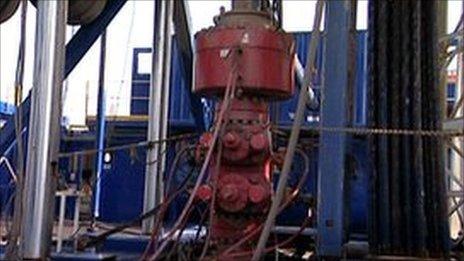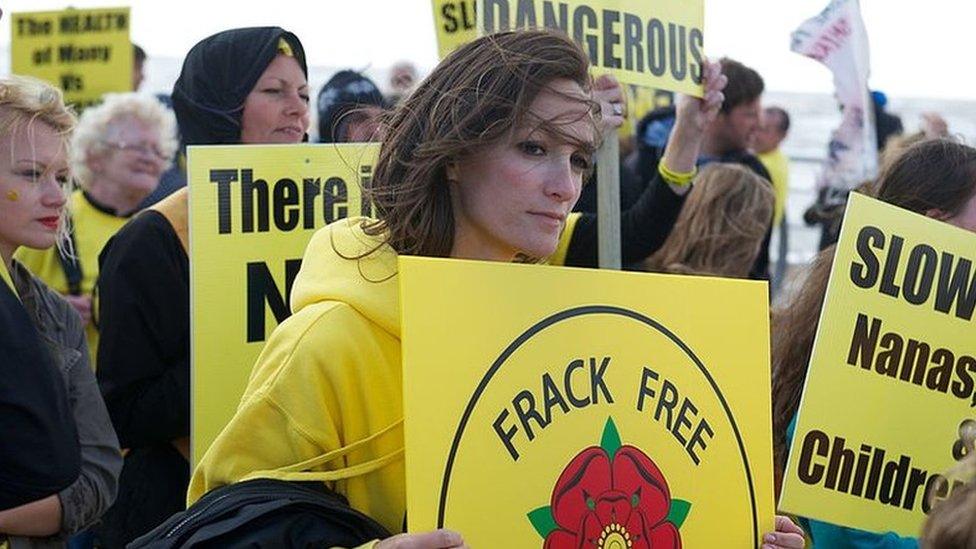Autumn statement: A future for shale gas in Wales?
- Published
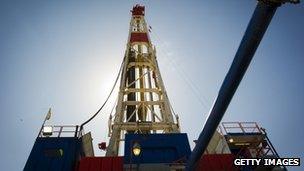
Fracking has had bad publicity in Lancashire and in some US states
Energy was one of the areas featured in the chancellor's autumn statement.
George Osborne approved the construction of new gas-fired power stations, to be built over the next two decades, similar to the one opened in Pembrokshire last September.
The UK government says up to 26GW of new gas generating capacity could be required by 2030.
That could mean up to 30 new power stations.
There was also news on extracting gas from shale underground by a controversial process known as fracking.
DECC will establish an Office for Unconventional Gas and Oil, which will join up responsibilities across government and provide a single point of contact for investors and streamline the regulatory process.
At the moment we don't know what this means for the Welsh government or for local authorities, such as Vale of Glamorgan, who were rejected test drilling last year before losing on appeal.
The UK Government called shale gas a "potentially an exciting new prospect for diversifying our energy supplies".
While there were no details on the process of fracking today, the announcement did say "any development will have to meet high standards of safety and environmental protection".
Friends of the Earth said "a green light for shale gas would be a costly mistake for our country and countryside".
So far, fracking has had bad publicity in Lancashire and in some US states.
But what will it mean for Wales?
Well, local authorities will seek clear guidance on planning applications for drilling to produce gas.
The application to test drill near the village of Llandow in the Vale of Glamorgan may still happen, and there are six other potential drilling sites in south Wales accordiing to Gerwyn Williams, of Bridgend-based Coastal Oil and Gas Limited.
In one layer of rock, in one area of south Wales alone, there is an estimate of recoverable gas reserves, potentially worth £120bn.
Decision was overturned
WWF Cymru and Friends of the Earth want to ban fracking here, and a petition with 1,000 signatures has been presented to the National Assembly.
But a report by the British Geological Survey to map out where Britain's gas reserves are has been commissioned by the Department of Energy.
That's likely to be published soon, possibly in the new year.
It's likely to spark a new round of drilling licences similar to the gas exploratory licences already issued a few years ago in south east and north east Wales.
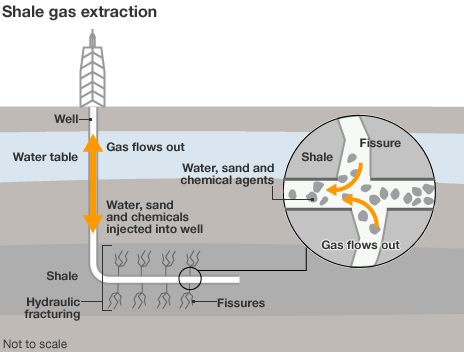
- Published5 December 2012
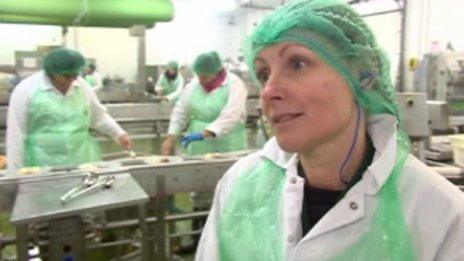
- Published1 December 2012
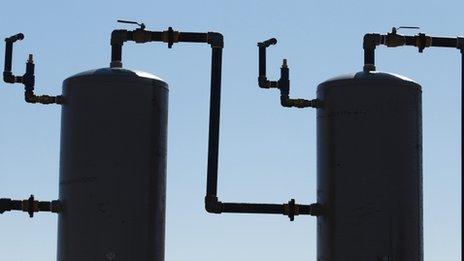
- Published17 April 2012
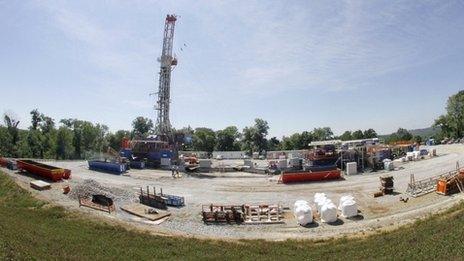
- Published19 March 2012
- Published26 September 2011
